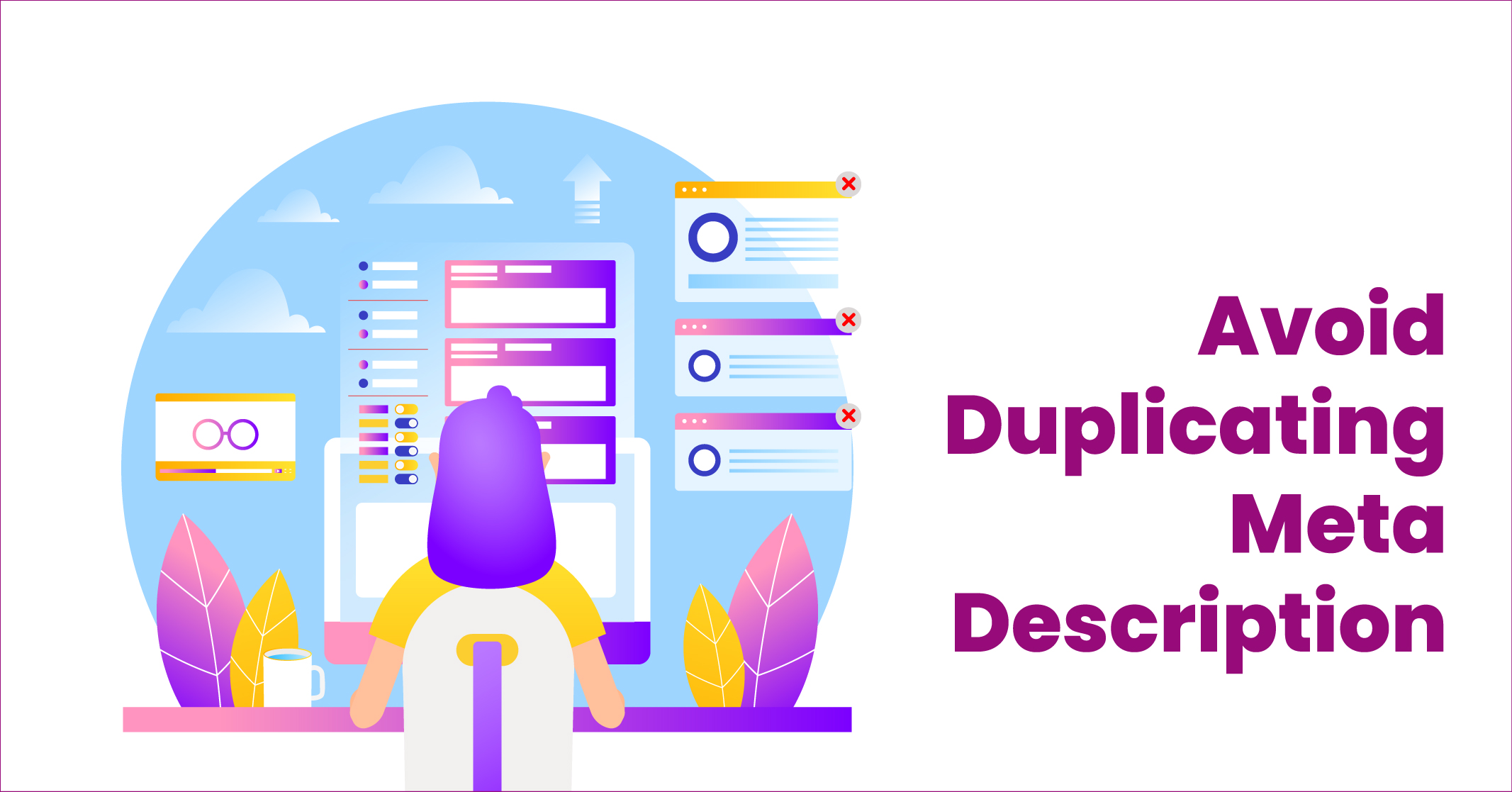I hope you enjoy reading this blog post.
If you want to get more traffic, Contact Us

Click Here - Free 30-Minute Strategy Session
Be quick! FREE spots are almost gone for this Month. Free Quote

Meta descriptions may not directly impact your website’s ranking, but they are critical to your SEO success. Why? Because they’re often the first interaction potential visitors have with your website in the search results. A compelling meta description can entice searchers to click and explore your site further.
But what makes a meta description irresistible? In this post, we’ll share tips on crafting click-worthy meta descriptions that capture searchers’ attention. So, are you ready to take your meta descriptions to the next level? Let’s dive in.

Click Here – Free 30-Minute Strategy Session
Be quick! FREE spots are almost gone for this Month
Meta descriptions are short blurbs, typically no longer than 160 characters, that provide a summary of a web page’s content. They appear in search engine results and can influence a searcher’s decision to click on your website.
In short, a well-written meta description can entice potential visitors to click and explore your website further. So, it’s crucial to craft a compelling meta description that accurately summarizes your content and sparks interest.
Search engines like Google provide the best examples of how meta descriptions work. Although not a direct ranking factor, meta descriptions play a crucial role in SEO because they help search engines understand the content on your page and present it to potential visitors in the search results.
Think of a meta description as a snippet of text that summarizes your page’s content and serves as an enticing preview for searchers. By crafting a compelling meta description, you increase the likelihood of getting more clicks and attracting relevant traffic to your website. So, it’s essential to optimize your meta descriptions for SEO and make them stand out from the competition.

Are you optimizing your meta descriptions? If not, you could be missing out on an opportunity to boost your rankings and drive more traffic to your website.
Here’s why meta descriptions are essential:
Having your top keyword phrase included in your meta description can make it stand out in the search results. When a user searches for a particular keyword or phrase, it appears as a bold result in the SERPs. Thus, if you are targeting that specific keyword, you want it to catch the searcher’s attention.
In the search results for any given query, the bolded keywords are what draw people’s attention. For instance, if you are looking for marketing budget spending trends for 2023, which results stand out to you? This example underscores the importance of including your top keyword phrase in your SEO meta title and meta description, ensuring that it appears as a bolded result and stands out among the competition.
Learn More: What is Keyword and Why is it Important?
When you share a page on social networks, they usually pull the meta description or the first sentence or two of the post. While you can edit the description, not everyone sharing your page will do so. To encourage clicks, create a strong meta description just like you would for search results.
Did you know that social bookmarking networks use meta descriptions as page descriptions? Networks like BizSugar and Pocket rely on the meta description first. While you can edit these descriptions, it’s not a guarantee that others who submit your pages will.
So, it’s best to create a strong meta description that encourages clicks, just like for search results. By doing so, you save yourself time and effort in the long run.
Are you using WordPress? If so, adding meta descriptions to your content is easy. With free plugins like All-in-One SEO Pack, you can simply fill out a box with your custom SEO title and meta description. No coding knowledge is required.
And if you’re not using WordPress, don’t worry. Many website platforms have SEO options built in or offer add-ons and extensions to help you optimize your content.
Crafting an effective meta description is crucial to making your website stand out on search engine result pages (SERPs).
Here are some tips to help you create the best meta description possible:
By following these tips, you can create a compelling meta description that entices users to click through to your website.
Meta descriptions are a powerful tool to improve your website’s organic traffic and engage users. They can help readers understand what your page offers and give them a reason to click through. You can even use them to promote your products or social media pages.
Want to write an effective meta description? Check out these nine tips!

Including a CTA in your meta description can encourage clicks. Use phrases like “Learn More” or “Shop Now” to make your page more enticing to searchers.
To increase clicks to your website, make sure to clearly describe the value visitors will gain. Use words such as “Learn,” “See,” or “Watch” for informative offers, and “Best,” “Deal/deals,” “New,” “Popular,” or “Packages” for products or services.
Experiment with different keywords, phrases, or CTAs in your meta descriptions to determine what drives more engagement. A/B test two different meta descriptions for each page and track metrics like bounce rate, time on page, and conversions to see which version earns more clicks. Use that information when crafting new meta descriptions.
Long meta descriptions get truncated in search results, causing users to miss out on valuable content.
Tailoring your meta descriptions to the specific page can boost click-through rates. But keep in mind the recommended character length to avoid harming your rankings.
Meta descriptions must capture the attention of your ideal visitors and inspire action, regardless of where they appear on your site. To create standout meta descriptions, try different approaches, like using eye-catching words, relevant keywords, descriptive language, and addressing the reader directly. You could also use controversy or playful descriptions to engage users.
Including relevant keywords in your meta descriptions helps search engines understand your content and improves your ranking. Use a tool like Ubersuggest to find the best keywords for each page and add them to your meta description. Keep in mind that each page should use different keywords. While Google doesn’t use keyword meta tags directly in its rankings, they are still valuable for users.
Structured data metatags provide extra information to search engines and social media platforms. This can improve your meta description and help you rank higher in search results.
Some common types of structured data meta description tags include business name, address, phone number, product description, and image URL. Start using structured data to enhance your website’s performance.

Duplicate meta descriptions can harm your website’s ranking and confuse users about your content. This is particularly crucial for e-commerce sites with similar product pages. To check if you have duplicate meta descriptions, use a Traffic Radius free web audit tool. Click on any issues found to get advice on how to fix them. With unique meta descriptions, you can inspire action and stand out in search results.
Your meta description can be a powerful call to action. To make your meta descriptions more compelling, use clear and concise language that describes the value of your content. Add calls to action like “Click here” or “Shop now” and test different variations to see which ones perform best.
Highlight your unique features and create a sense of urgency to encourage visitors to take action.
When crafting a meta description, use relevant keywords and phrases that accurately describe your web page. Make sure it’s unique, compelling, and written in active language. Highlight the benefits or solutions visitors can find on your page and include a clear call-to-action.
Although meta descriptions aren’t a direct ranking factor, they still impact your SEO. The summary you provide can attract users and encourage them to engage with your content, which can improve click-through rates.
Meta descriptions should be between 155-160 characters and their pixel width should be checked to prevent truncation in search results. Aim for 680 pixels for mobile and 960 pixels for desktop.
Optimizing your meta descriptions is crucial for onsite SEO. Craft unique and engaging meta descriptions for each page to help search engines and users understand your content. Don’t forget to include them on all pages, including blog posts and product pages.
Contact Traffic Radius to learn more about ways to boost your site’s traffic.

LEAVE A REPLY